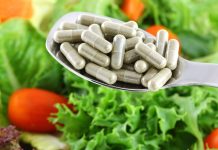Table of Contents
Our digestive system is so complex that we’re a rookie to understand its complicated functionality. We blindly follow the myths we have believed in for centuries. With recent research studies and scientific tests, we are just learning the myriad ways it can affect our wellbeing.
To make it more complicated, many of the conditions associated with poor digestive health, like bloating, constipation, and diarrhea, are forbidden conversation even today, despite being a common physiological disorder. So we seldom talk about them openly.
This has led to leaving people suffering in silence unnecessarily and making it a cause of other related ailments.
It is time we unlearn those incorrect assumptions, at least a few of them, and learn the facts to maintain a healthy digestive system.
First, let’s understand the basics of the digestive system before we crack the myths.


The digestive system has 2 sets of organs: hollow organs and solid organs. The hollow organs are part of the gastrointestinal tract, also known as the GI tract or the digestive tract. This comprises the mouth, esophagus, stomach, small intestines, large intestines, and anus. The solid organs of the digestive system are the liver, pancreas, and gallbladder.
Each part of the digestive system plays its own role in moving food and liquid through the GI tract. It breaks food and liquid into smaller parts, for better absorption. After it breaks the food into smaller parts, the body absorbs and moves the nutrients to where they are needed.
Now let’s uncover the wrong notions about our digestive system.
1. Stress and Spicy Food Causes Stomach Ulcers
Be assured, stress and spicy foods do not cause ulcers, but they could aggravate the symptoms.
Stomach ulcers are painful sores in the lining of your stomach. It is a type of peptic ulcer that affects the stomach and small intestines. It is most often caused by a common bacterium called Helicobacter pylori (H. pylori).
You could contract the infection through contaminated food or water or by mouth-to-mouth contact, such as kissing an infected person. Long-term use of non-steroidal anti-inflammatory drugs such as aspirin, ibuprofen, or naproxen can also cause the infection.
Treatment depends on the cause of your ulcer. Normally, prescribed medicine from your doctor can treat ulcers, but in rare cases, it may require surgical treatment. Non-surgical treatment may include taking probiotics and supplements and discontinuing all anti-inflammatory drugs.
Ideally, a healthy diet that includes lots of fruits, vegetables, and fiber can fortify your intestinal tract and improve your overall health.
2. Drinking Milk Cures Ulcers


It was a general belief that drinking milk healed peptic ulcers. But that’s not always true. Perhaps it might soothe for a little while, but milk contents stimulate your stomach to produce hydrochloric acid and that can worsen the ulcers.
Although drinking more milk won’t help the ulcer heal, you don’t have to avoid milk completely. A serving or two a day is just fine.
Not just milk, but caffeine and alcohol can make the symptoms much worse. In fact, some foods irritate the stomach more than others. So, it would be wise to abstain from coffee, tea, cola, chocolate, alcohol, and fruit juices until the ulcer is healed completely.
Since the H. pylori bacterium often causes peptic ulcers, the only cure is antibiotics that can kill the symptom-causing germ.
3. People with Lactose Intolerance Should Avoid Dairy
Dairy products are a good source of calcium. But some people have trouble digesting milk products because of lactose intolerance.
If you have such a condition, you may have a deficiency of the lactase enzyme, which breaks down the lactose – a sugar in milk products.
So you might experience an upset stomach symptom soon after you consume milk or eating cheese, butter, curd, or anything that contains lactose. Ice creams too!
But we understand from many studies that lactose intolerance does not mean you are allergic to milk. The fact is, without the lactase enzyme, your body cannot digest food properly that has lactose in it.
This means, if you eat dairy products, the lactose from these foods will pass into your intestine, resulting in gas, cramps, a bloated feeling, or diarrhea.
However, in most cases, people with lactose intolerance can handle some amount of lactose. You can drink lactose-free milk that has added calcium. It is possible to digest yogurt that contains live cultures easily because it has healthy bacteria that produce lactase. You can still get enough calcium from foods like tofu, leafy green veggies, and juices or soy milk that have added calcium.
Over-the-counter lactase replacement products help many people continue to enjoy dairy.
4. Irritable Bowel Syndrome (IBS) is Due to Troubled State of Mind
That is not entirely true, though your mental state can seriously affect your bowel movements.
IBS has very real physical symptoms, the main ones being diarrhea or constipation, bloating, cramping, and abdominal pain. During this condition, your bowels may either be overactive or underactive. This causes a variation in the pressure on your bowels and your stool type.
Stress and anxiety may play a critical part, but may also relate to problems with digestion and increased gut sensitivity.
With the modern-day challenges in life, IBS is very common, affecting 10 to 20 percent of the population in developed countries, and needs immediate attention.
Some common treatments include fiber supplements, anti-diarrheal medications, anticholinergic medications, eliminating high-gas foods, anti-depressants, antibiotics, and counseling.
5. Eating Less Will Make Your Stomach Shrink


For an adult, the stomach remains more or less the same size; unless you have surgery to make it smaller (Bariatric surgery).
Your belly has a rubber band-like characteristic that allows it to change size. This elasticity makes it easier for you to binge when served with a giant meal. Likewise, for the shrinkage, your stomach can rebound back to normal size.
But, it will not continue to get any smaller, even if you eat much lesser or skip meals.
When you eat food, it first goes into the upper part of your stomach called the fundus—a bulbous, dome-shaped upper portion of the stomach. The fundus stretches out as much as it can to accommodate the food you gorge on.
However, there is a threshold limit to the fundus, and it varies for everyone. Some people can fit in more (competitive eaters), while others don’t have as much space to work with. This is the only difference, though it doesn’t make the size of the stomach different.
All our stomach is of the same size, irrespective of our body weight.
6. Alcoholism Causes Liver Cirrhosis
Cirrhosis is the severe scarring of the liver and its poor functioning seen in the final stages of chronic liver disease. Many forms of liver diseases and conditions, such as hepatitis and chronic alcoholism, cause this.
As per statistics, alcoholism is the second most common cause of cirrhosis in the U.S. It is responsible for less than 50% of all cases of cirrhosis.
However, alcoholism is not the only cause of cirrhosis of the liver. Other serious causes of cirrhosis in adults are primary biliary cirrhosis, bile duct injury, prescription drug reactions, chronic hepatitis B, chronic hepatitis C infection, non-alcoholic fatty liver disease (NAFLD), and non-alcoholic steato-hepatitis (NASH).
Nevertheless, excessive alcohol consumption is a serious risk factor for cirrhosis.
Each time you injure your liver—whether by excessive alcohol consumption, disease, or any other cause—it tries to repair itself. In the process, fibrosis forms. As cirrhosis progresses, it forms more such scars. Consequently, this makes it difficult for the liver to function properly.
Usually, liver damage caused by cirrhosis cannot be reversed. As the liver is continually working, the scarring deteriorates the organ’s functioning. But, if cirrhosis is diagnosed early, and the cause is treated correctly, you can control further damage.
The best approach to preventing your risk of cirrhosis is to prohibit drinking alcohol, eat a healthy diet, maintain a healthy BMI, and reduce your risk of hepatitis.
Talk to your doctor about more ways to reduce your risk.
7. Heartburn is Nothing to Worry About
Heartburn is always an annoyance, isn’t it? It is a common problem caused by acid reflux. It occurs when some of the stomach contents shoot up into the esophagus, which is the tube that food passes through going from your mouth to your stomach.
The earliest sign is a burning sensation in the throat or chest due to stomach acid.
If you have heartburn, you may be sensitive to certain foods, such as chocolate, peppermint, coffee, carbonated beverages, citrus foods, fried and fatty foods, and spicy foods.
Talk to your doctor if you experience heartburn twice a week or more. You could have Gastro-Esophageal Reflux Disease (GERD). Untreated GERD can lead to serious complications, such as bleeding or ulcers in the esophagus. Barrett’s esophagus is another serious condition that can increase your risk of esophageal cancer.
8. If Your Stomach Rumbles, It Means You’re Hungry
Though a rumbling stomach can sometimes signify hunger, it is not always so. It can growl even on a full stomach.
Health authorities actually have a name for that funny sound that comes from your internal organs. It’s called “borborygmi” (pronounced BOR-boh-RIG-me), and the fact is, it doesn’t come from your stomach at all.
When you’re hungry, hormone-like substances in the brain warn you of the desire to eat, which then signal the intestines and stomach. Therefore, the muscles in your digestive system contract and cause these sounds.
However, more often than not, the stomach gurgling that you hear is usually stomach muscles contracting and the movement of the last remnants of your previous meal or gas passing through your gut. If your gut produces too much gas from improperly absorbed food, it can cause excess air.
Gastroenterologist Laurence Bailen, MD, an assistant professor at the Tufts University School of Medicine in Massachusetts says “It happens if you eat too fast or if you’re talking and eating at the same time, and when you keep drinking fluids while you’re exercising.”
9. More Fiber is Always Better


For many decades, we have touted dietary fiber as an essential component of a healthy diet. It is healthy and can ease symptoms of digestive conditions like irritable bowel syndrome. Aim to consume 20 to 35 grams of fiber per day, which may come from dietary fibers, both soluble and insoluble.
But don’t stuff it in your diet all at once; fiber can cause gas. In fact, in some recent studies, they consider insoluble fiber to be neither digestible nor absorbable and therefore devoid of nutrition.
Excesses of certain soluble fibers like pectin and guar may suppress enzyme activity in your pancreas and protein digestion in the gut, leading to an anti-nutritive effect.
Many sources of dietary fiber come from whole-food plant sources, such as yams and sweet potatoes, green leafy vegetables, carrots, and other root vegetables. And also fruits with an edible peel (like apples and pears), berries, seeds, and nuts.
10. Gluten Allergies are Common
Gluten is a group of proteins, called prolamins and glutelins, found in grains such as wheat, barley, and rye. It occurs with starch in the endosperm of various cereal grains.
There is no such thing as a gluten allergy, however, there is a condition called Celiac Disease. This disease is an ailment that has an intolerance to gluten. After eating gluten-containing products, symptoms of celiac disease include severe diarrhea, rash, severe weight loss or failure to gain weight properly, and abdominal pain.
There are many people who assume they are allergic to gluten without consulting a specialist and unfortunately end up limiting their diet. If you have gluten intolerance, then you should see a gastroenterologist if the symptoms are about celiac disease.
Few people with gluten intolerance have celiac disease. According to a recent study, less than 1 percent of Americans have this condition.
Conclusion
Digestion is vital because your body needs to extract the essential nutrients from the food and drink you consume. Your body utilizes these nutrients for energy, growth, and cell repair. This is important to enable you to work properly and stay healthy.
Hygienic food is critical for proper digestion. More than hygiene, it is important to understand the workings of your digestive system and clear up misconceptions that lead to indigestion and illnesses.
Get the facts right and improve your digestion for good health.

























